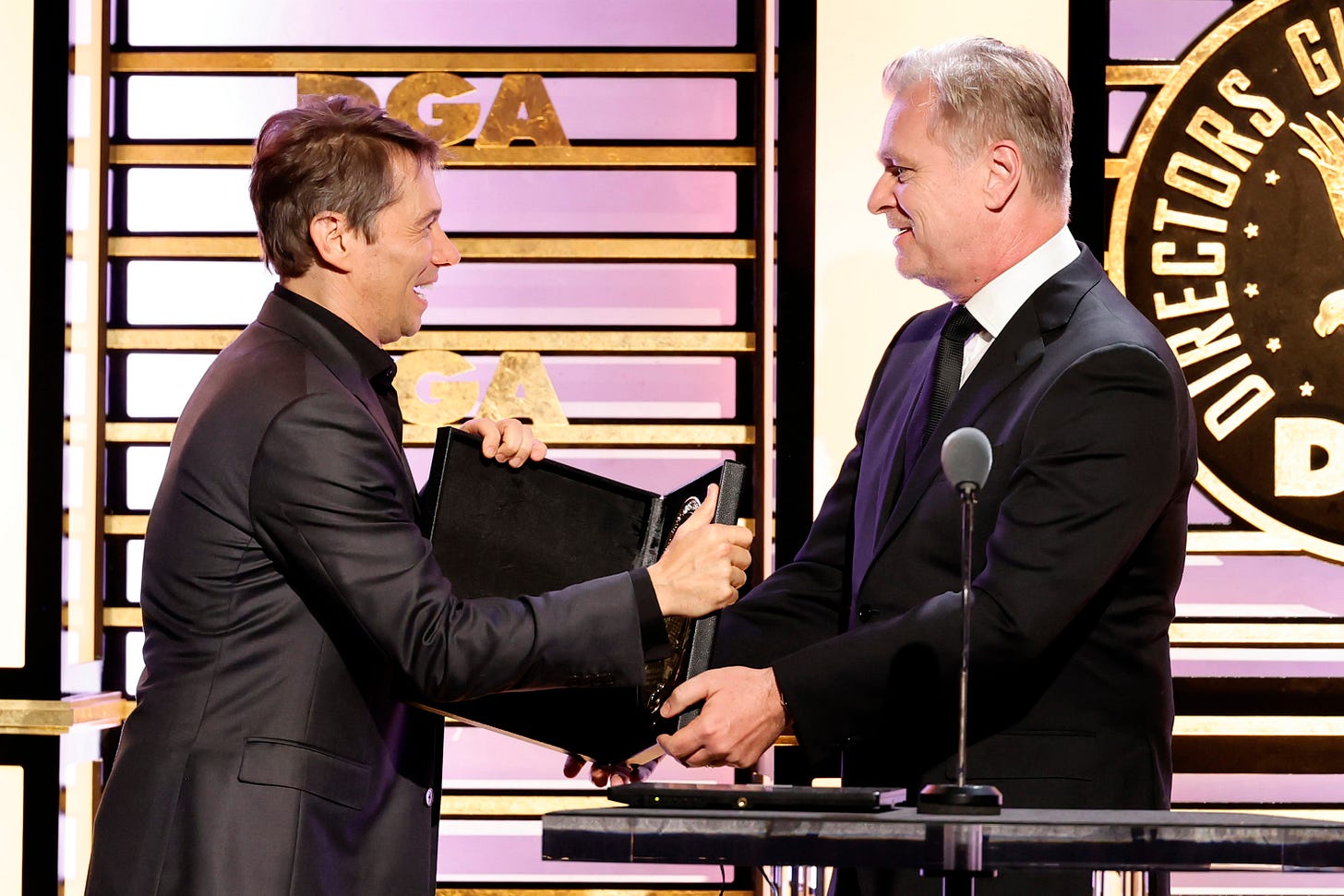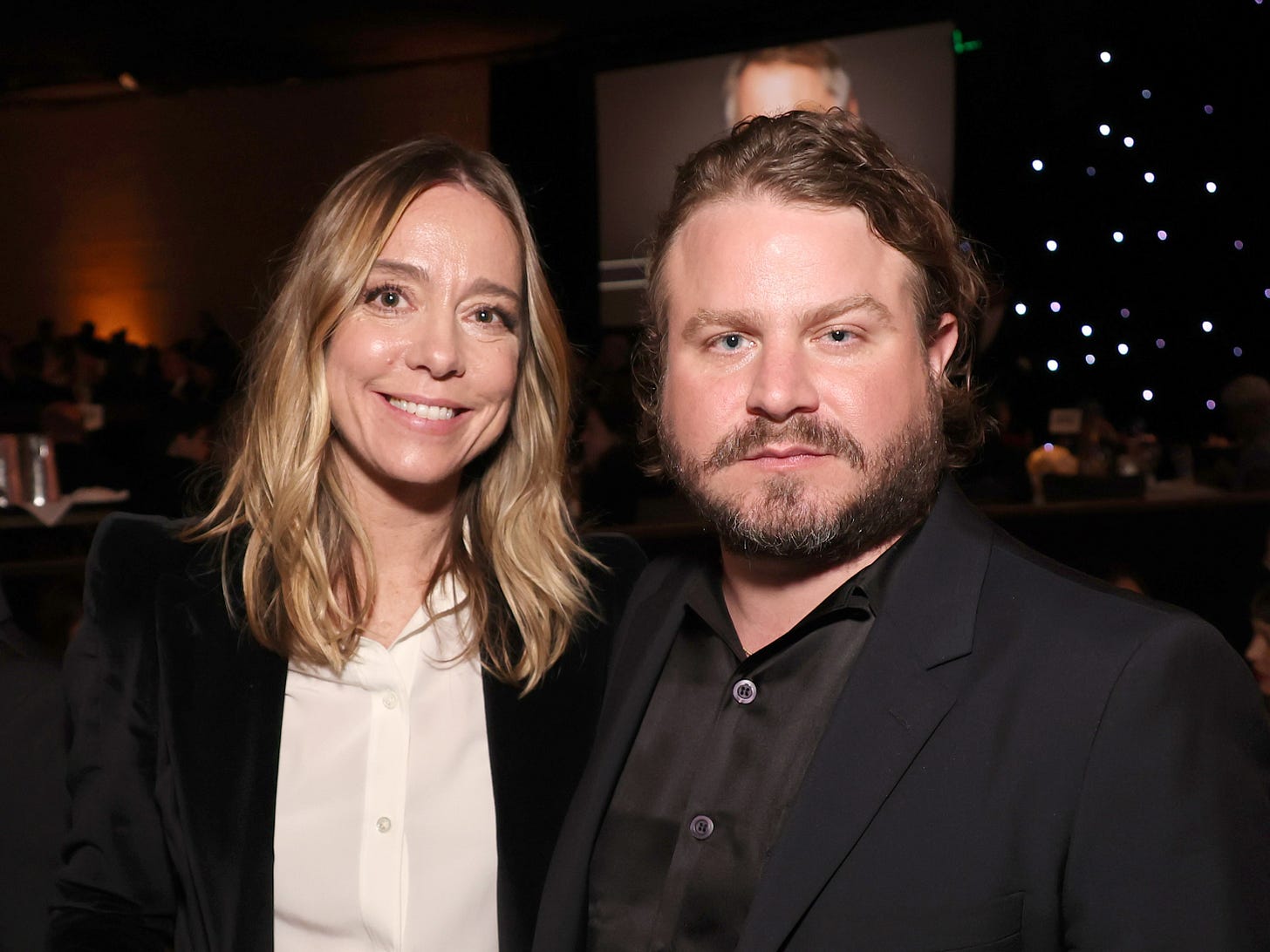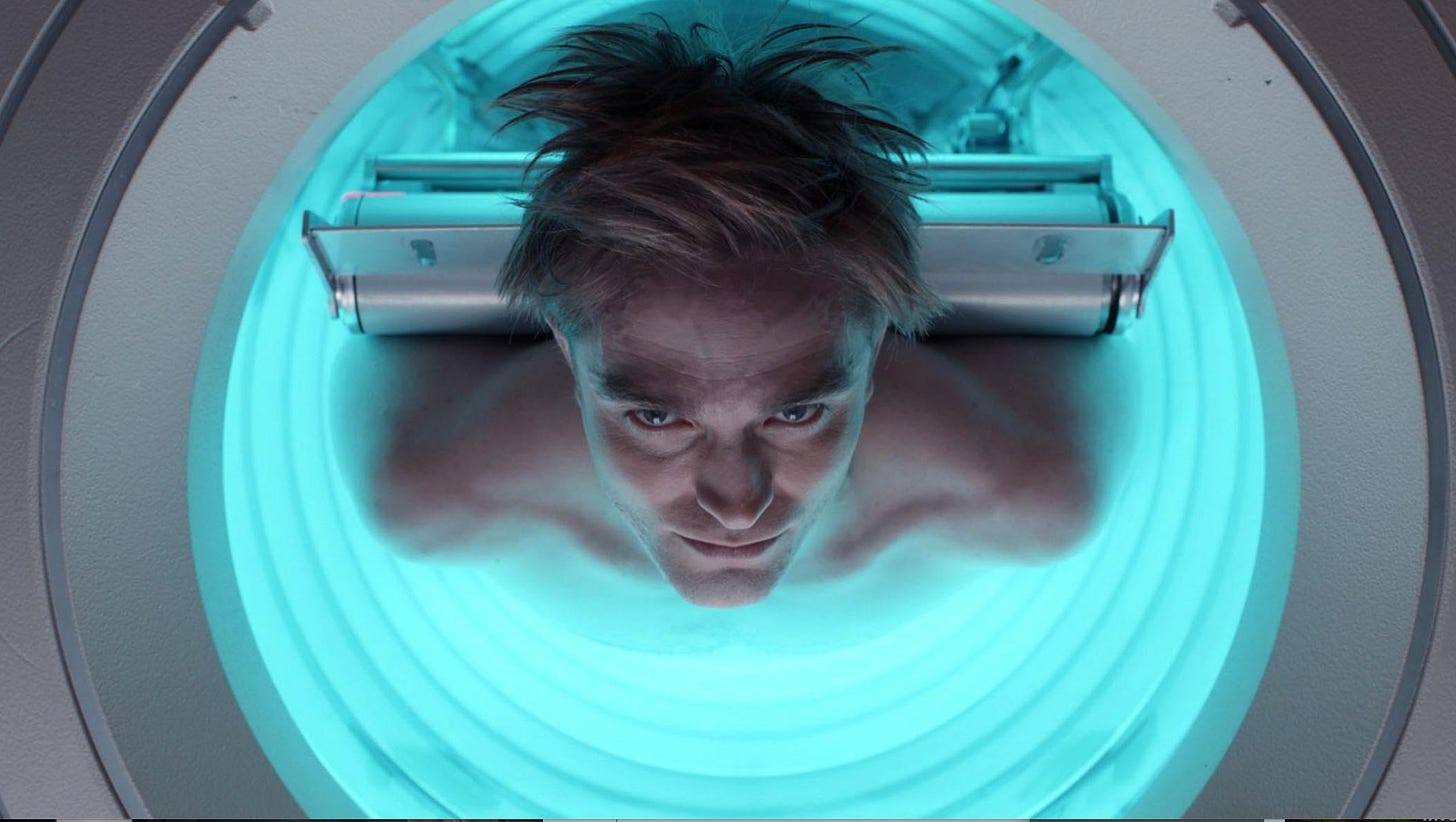Bong Joon-ho, 'Mickey 17' and the Fine Art of Following Best Picture
I analyze the 'Parasite' auteur's latest and the coming acts from this decade's other helmers behind Oscar's top winners

When Parasite won its historic best picture Oscar in 2020, confirming that a new, truly international era of the Academy was upon us, director Bong Joon-ho handled all the hoopla with his characteristic good humor. “Thank you, I will drink until next morning,” he said when accepting his best director award. Giving the acceptance speech for best picture, producer Miky Lee said of Bong, “I like everything about him: his smile, his crazy hair, the way he talks, the way he walks, and especially the way he directs. And what I really like about him is his sense of humor.”
In the five years since then, Bong has insisted, he’s stayed on the same wavelength, even though his Parasite follow-up Mickey 17 is the kind of big-budget Hollywood spectacle that would not have been possible before the Oscar. “In terms of how I work, nothing really changed,” he told the Los Angeles Times in a recent interview. “I didn’t take any time off afterwards. I just kept on working.”
The sci-fi saga Mickey 17, in which Robert Pattinson plays an “expendable” worker on a distant spaceship who is “reprinted” (aka cloned) every time he dies, is not exactly a Bong Joon-ho biopic. But it does seem telling that this is the story he chose to dive into when he had the whole world at his feet, particularly given how Bong’s optimistic, industrious spirit seems to have made its way onscreen in Pattinson’s Mickey. “Bong has this joyfulness to him, which does feel quite strange,” Pattinson told the L.A. Times. “We were shooting this montage of grotesque deaths and he just had this lightness to his touch.”
At one point in the film Mickey reminds himself, “It’s OK for me to be happy.” That’s not something Bong has ever publicly said he had a problem with, but it did remind me of a recent conversation I had with another Oscar winner, who described a deep feeling of anxiety and self-doubt both before and after their win. An Oscar win can feel like being placed on a very, very high pedestal, with access to things that were never previously within reach — but also a very, very long way to fall.
Mickey 17, despite an opening weekend box office ($19 million in North America) that likely puts the massive financial success of Parasite out of reach, is no fall from grace. Of the big-budget follow-ups to Oscar successes that Warner Bros. has released in the past year, it’s easily better than Furiosa or Joker: Folie a Deux, and evidence that despite the Zaslav-era obsession with cost-cutting, the studio is still invested in filmmakers and their wilder ideas.
Mickey 17 got me thinking more broadly about Oscar follow-ups, and how directors over the years have met the enormous challenge of pouring everything they have into a film that succeeds — and then having to do it all over again.
Here We Go Again
A few years ago I participated in an episode of the podcast Screen Drafts dedicated to ranking best picture follow-ups like Mickey 17 — the movies directors chose to make after achieving the career pinnacle of winning best picture.
It’s 93 films in total — Sean Baker, Christopher Nolan, Daniel Scheinert and Daniel Kwan and Siân Heder have yet to release their follow-ups, of course — and a mixed bag, as you might imagine. Back in the classical studio era, when directors would be assigned multiple films a year, you’d get situations like Frank Capra’s film Broadway Bill already being in theaters by the time he won the Oscar for It Happened One Night. Even Alfred Hitchcock, who had a lot more sway than most studio directors of the 1940s, followed up Rebecca with the much more programmatic Foreign Correspondent.
Even more fascinating are the directors who had all the power in the world to choose their best picture follow-ups and pushed their blank checks as far as they could go. Francis Ford Coppola used the back-to-back successes of the Godfather movies to make Apocalypse Now, a masterpiece made at enormous expense in every sense of the word. We’re still living in the world built by Titanic’s success, with James Cameron set to release his third Avatar movie this year. Then again, Ben Affleck used his Argo clout to direct and star in Live by Night, and Michael Cimino followed The Deer Hunter with the film that infamously bankrupted a studio, Heaven’s Gate.
What you learn looking over the list is that, as hard as it can be to make a film that wins best picture, it’s even harder to follow it up with something that matches it. Sure you can try and be Vincente Minnelli, who followed the ebullient An American in Paris with the Hollywood noir The Bad and the Beautiful, or really go for gold like David Lean and William Wyler, who each followed their best picture winners (Bridge on the River Kwai, Mrs. Miniver) with another picture winner (Lawrence of Arabia, The Best Years of Our Lives).
But the true smart move, I think, is to pivot, as Bong has. After Jonathan Demme won best picture and best director for his psychological thriller The Silence of the Lambs, he followed it with the deeply affecting drama Philadelphia — another Oscar hit, but a different genre entirely. Steve McQueen followed 12 Years a Slave with the crime thriller Widows, which deserved more respect than it got and is now generally recognized as a very different kind of masterpiece. Joel and Ethan Coen and Martin Scorsese pivoted toward genre too, following their long-awaited best picture wins, respectively, with a dark comedy (the Cohens’ Burn After Reading) and a potboiler (Scorsese’s Shutter Island) that felt like them shaking loose any hint of stuffy prestige.
Can we expect Bong’s fellow recent best picture winners to follow his lead? Here’s what we know about the next projects from the directors who haven’t released their follow-ups yet.
Academy Auteurs’ Next Moves

Sean Baker (Anora, 2024)
As I wrote last week, Baker has been clear that he doesn’t intend to change the way he makes film, or even pull a Bong and accept a much larger budget from a studio. However, given Anora’s famously miniscule $6 million budget, we can probably safely assume Baker will have some kind of upgrade on his next project, which he’s said he intends to jump into this year. Like Bong, it seems, he has no intention of taking time off to rest on his laurels.
Christopher Nolan (Oppenheimer, 2023)
Few directors work as reliably and on schedule as Nolan, who has released a new film every three years for the past decade, and always on the same late July release date that may now forever be known as Barbenheimer weekend. He’s currently in production on his ridiculously star-studded adaptation of The Odyssey, set for release — when else? — July 17, 2026. It’s rumored to have the biggest budget of Nolan’s career, and given that he managed to make a global hit out of a three-hour historical biopic, that truly seems like the least Universal can do for him.
Daniel Scheinert & Daniel Kwan (Everything Everywhere All at Once, 2022)

Speaking of top-tier directors in the Universal fold: The studio signed a five-year exclusive deal with the duo known as Daniels back in August 2022, just as Everything Everywhere crossed the $100 million mark at the global box office but more than six months before its improbable Oscar sweep. Their follow-up project recently abandoned its planned June 12, 2026 release date, with reports that the film “is coming along, it just needs more time.” Like Bong, they’re following their indie hit with a major studio effort, but given the wild ambitions of Everything Everywhere, it’s hard to know how different a Daniels studio film might look from what they’ve made before.
Siân Heder (CODA, 2021)
About a year after CODA’s underdog Oscar victory, Heder appeared on an episode of HBO’s Barry as herself, the frazzled director of a ridiculous-looking superhero movie she knows is beneath her. The real Heder hasn’t gone that route — in 2021 she attached herself to a romantic comedy and a memoir adaptation and last year to an adaptation of the bestseller Tomorrow, and Tomorrow, and Tomorrow, but she has yet to start production on her proper follow-up. While she remains very much in demand, her journey is evidence that in the current downshifted version of Hollywood, even a best picture win is no guarantee of a fast track.

Chloé Zhao (Nomadland, 2020)
Yes, she technically has already released her best picture follow-up in Eternals, the Marvel film that opened just a few months after Nomadland’s Oscar win. But Zhao had long since wrapped that pandemic-delayed release by the time she won her Oscar, so if you want to see her true blank check at work, look toward Hamnet, due from Focus Features later this year. An adaptation of Maggie O’Farrell’s bestseller, it’s a historical drama about William Shakespeare, featuring major stars of the moment Jessie Buckley and Paul Mescal. That’s all a way of saying it sounds more likely as Oscar bait than Nomadland ever did.



